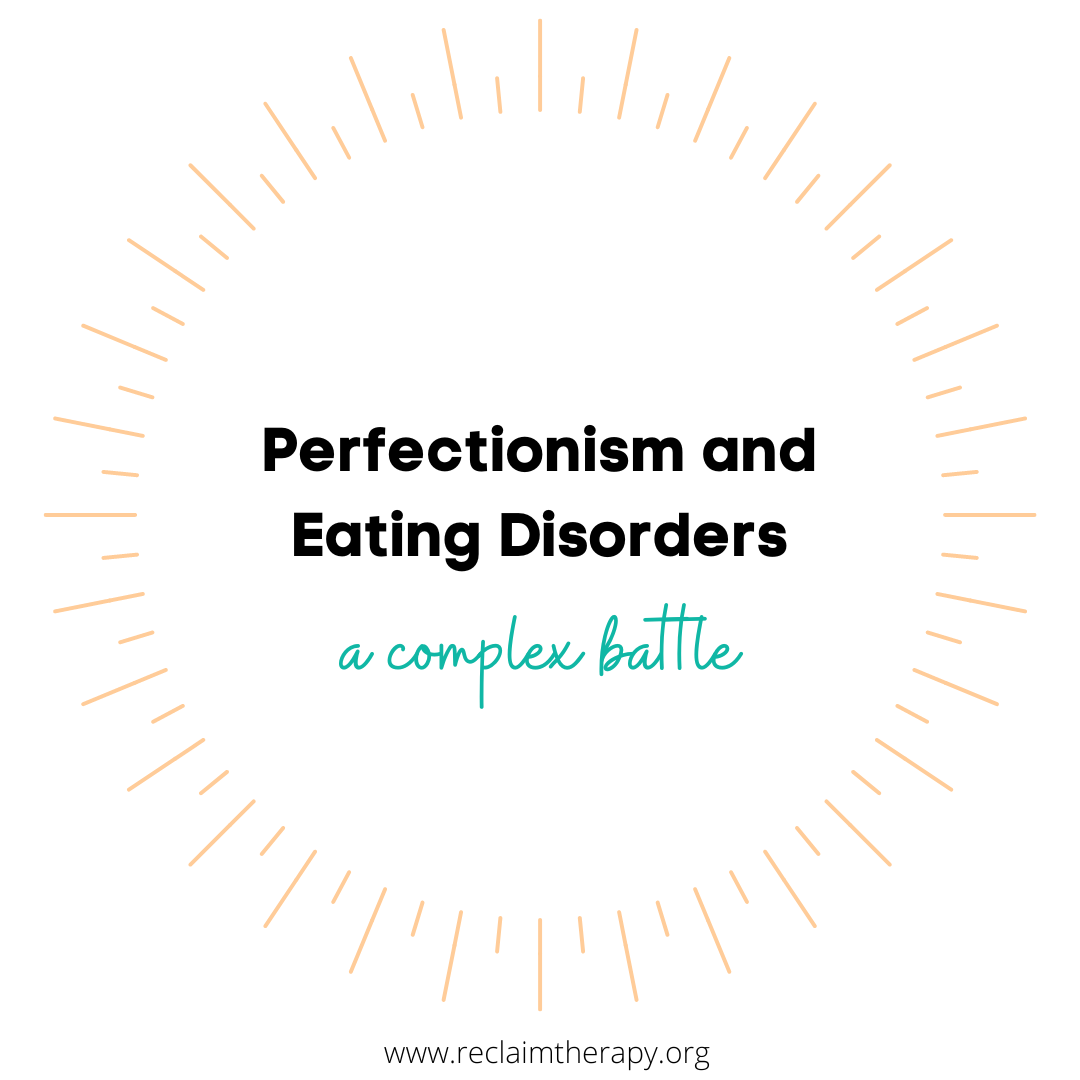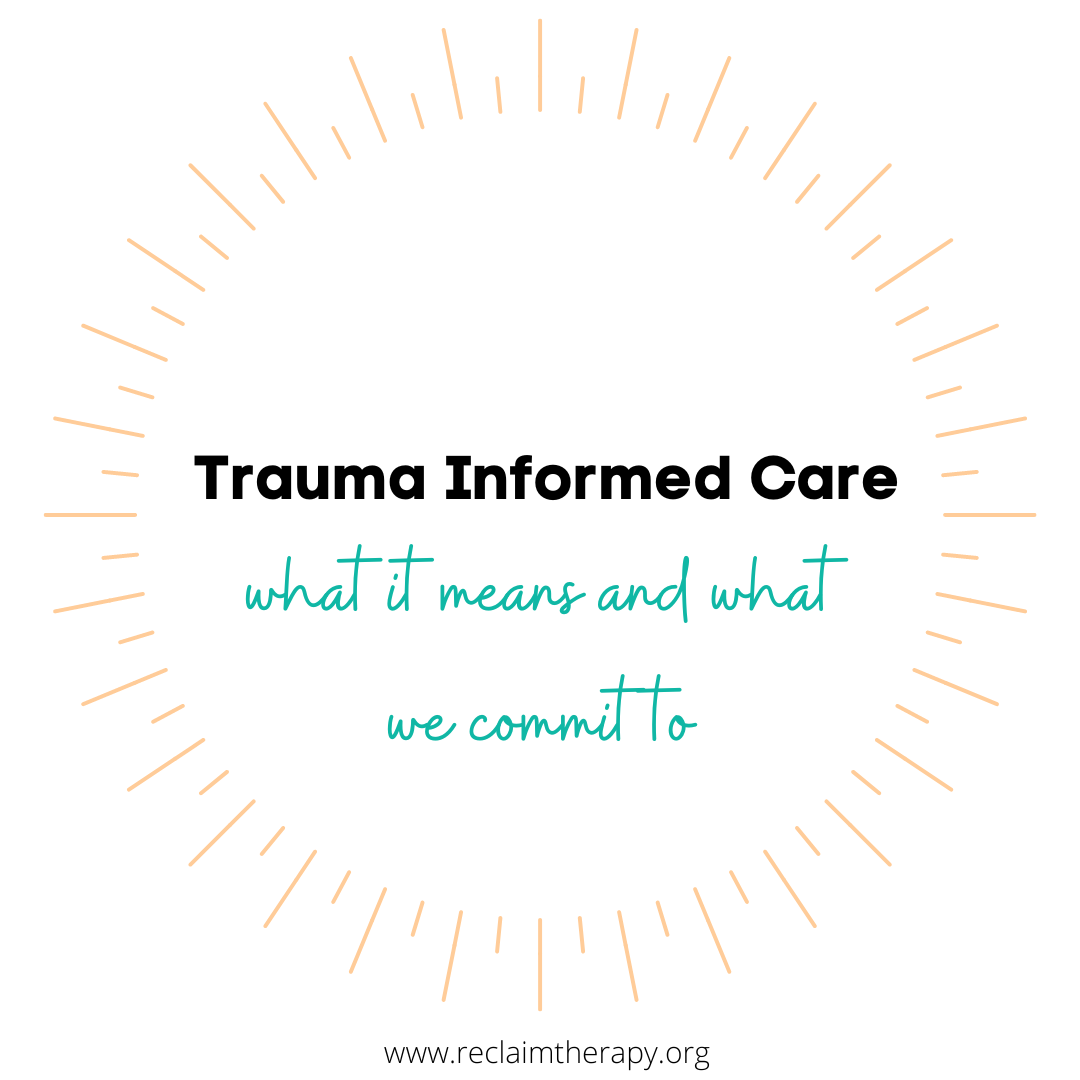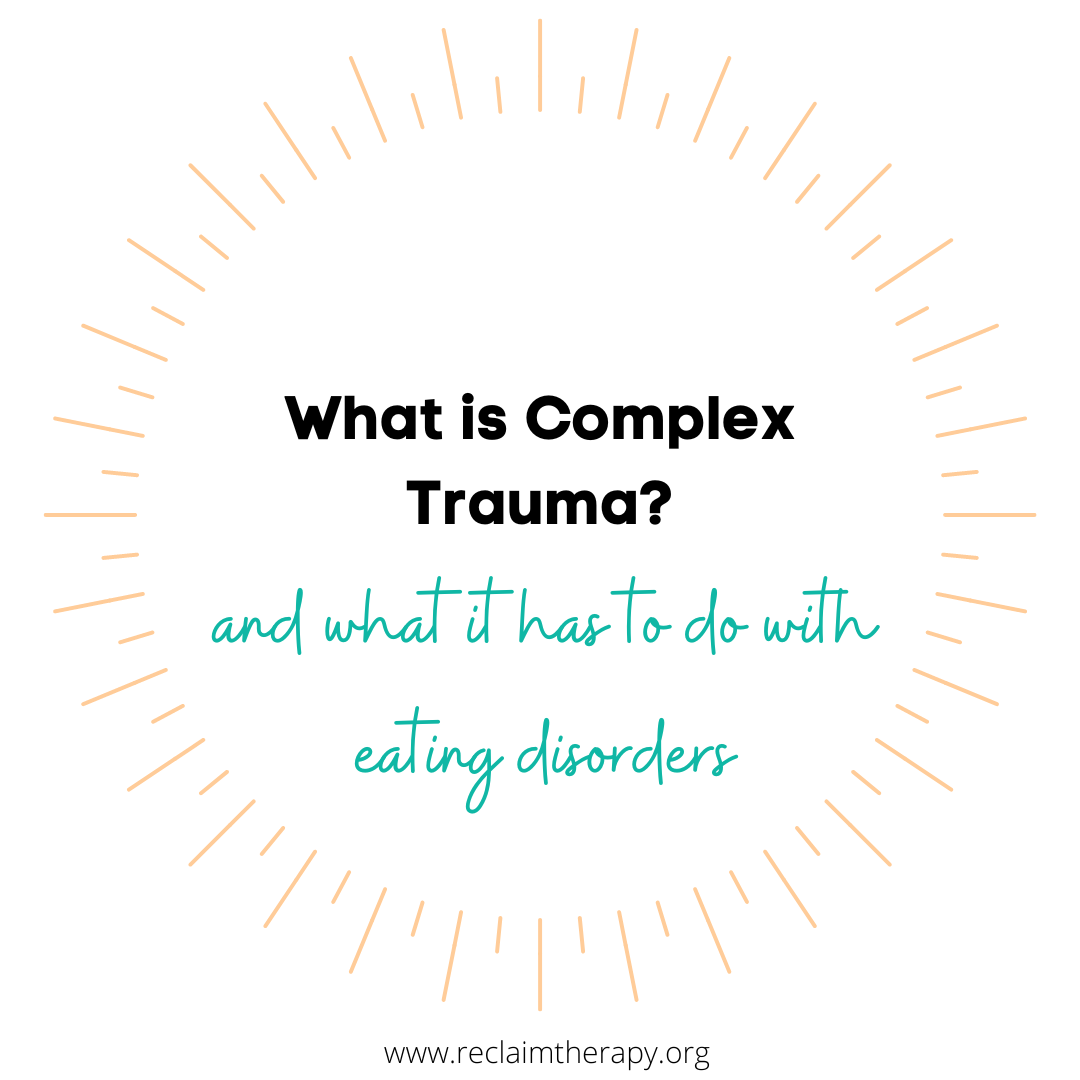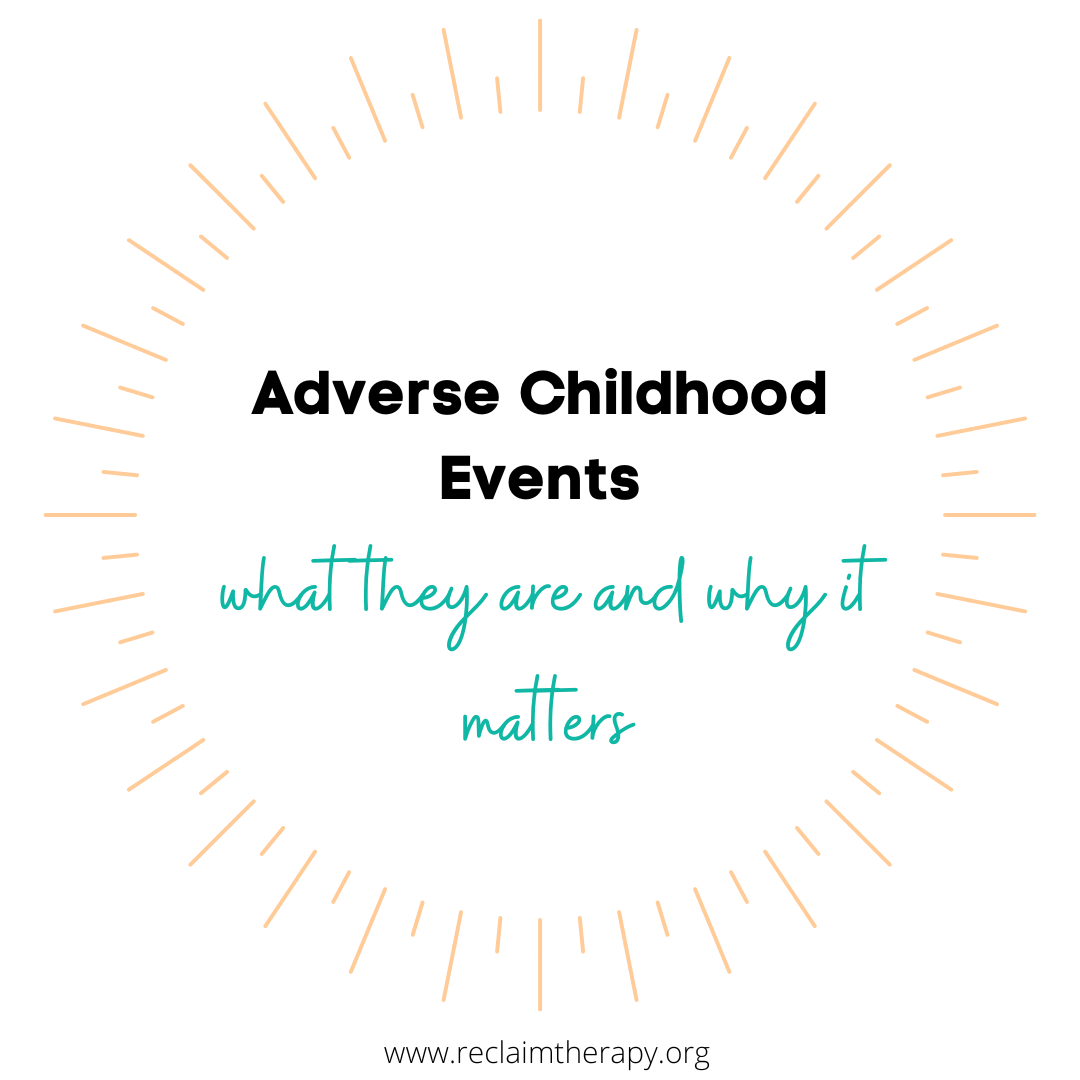
Perfectionism and Eating Disorders: A Complex Battle
For many, the pursuit of perfection has become so routine, that it can be hard to recognize when you’re engaging in perfectionist tendencies and how much it impacts your sense of self and sense of belonging and enoughness in the world.
Whether it’s striving for the thin-ideal, grinding and pushing for achieving or recognition, or pushing to have seemingly unmatched self-control, the pressure to meet society’s, and at times family of origin’s, high standards take a toll and can be overwhelming.

Trauma Informed Therapy in Pennsylvania
Here at Reclaim Therapy, we are a group of eating disorder therapists and trauma specialists in Pennsylvania. As a trauma informed therapy practice, we understand how trauma has an ongoing and living impact on the mental, physical, relational, social, spiritual and emotional realms of the human experience.
We meet our clients with acceptance, curiosity, compassion and a genuine interest in them, and what they have experienced, as humans in the world.
We believe that it is a right for all people to resolve and heal from trauma they have experienced.

What is Complex Trauma? (CPTSD) A Trauma Therapist Explains
Two distinct components of CPTSD are:
Childhood attachment failure, even in the absence of other forms of mistreatment
Ongoing relational maltreatment like neglect, verbal, emotional, sexual or physical abuse.
Outside of childhood experiences, CPTSD is also seen as a result of imprisonment, sex trafficking, torture or being exposed to long term conflict.

Adverse Childhood Events : Childhood Trauma Test Included
According to the CDC, close to 60% of adults in the United States have experienced at least one ACE, and nearly 1 in 6 adults has experienced 4 or more. The effects of ACEs are not limited to living through trauma in childhood, but often last into adulthood. Studies show that experiencing ACEs impacts a person’s physical and mental health, behavior, and social functioning.

Size Inclusivity: More Than a Number
Recently, I attended a trunk show for a well-known clothing brand that specializes in inclusive sizing.
I was excited to get to know the brand better and looked forward to supporting their efforts. I invited along a friend, and we headed into Philly for a session with our very own stylist…or so we thought.

Self Compassion Assessment
In this blog we talk about why self-compassion is so important in eating disorder recovery and recovery from trauma. We have included a self-compassion assessment developed by researcher Kristin Neff and a scoring guide to guage how self-compassionate you are. This isn’t meant for you to judge yourself, but instead an invitation into developing into the skill of self-compassion.

How to Navigate Relapse in Eating Disorder Recovery
At times you probably feel like things are going ok, that things are feeling a bit lighter, a less urgent, a little less impulsive to dive headfirst into eating disorder urges.
And other days it probably feels like you’re at the bottom of an epically steep mountain that is recovery.
Relapses in eating disorder recovery happen.
And, they can be opportunities to grow in your recovery process.

3 Ways to Move Away From Diet Culture According to An Eating Disorder Therapist in Pennsylvania
Diet culture is everywhere. When you start learning about diet culture, how far it reaches and permeates your everyday life, you’ll also start to recognize sneaky ways that it shows up in everyday conversations or in everyday activities.
Here are some common examples of how diet culture could be showing up in your everyday:

An Eating Disorder Therapist's Tips for Maintaining Recovery from Binge Eating Disorder
Binge eating disorder impacts almost 3 million adults in the United States.
It is also the most common diagnosis among both women and men struggling with an eating disorder.
It’s estimated that almost 80% of people with binge eating disorder are also struggling with another mental health disorder- studies show that 65% of people suffering from binge eating disorder also present with anxiety, and can have up to six times more likelihood of being depressed. Many people struggling with binge eating disorder have experienced chronic life stress, including trauma (PTSD) or complex trauma (CPTSD).

Top Benefits of Receiving Eating Disorder therapy according to an Eating Disorder Therapist in Pennsylvania
If you’re experiencing some ambivalence when it comes to starting, or resuming, your recovery from your eating disorder, we want you know that we get it. And, you undeniably deserve a life that free from exhausting behaviors, shame and anxiety spirals and a disconnected experience of your body.
Starting therapy for your eating disorder is brave. And after working with countless clients who are in recovery, we want you to know what we believe to be the top benefits of receiving therapy for your eating disorder.

Signs of Eating Disorders in Teens
Eating disorders occur across the lifespan in all body types. And, we know that teens are at significant risk for developing eating disorders. Research has shown that the average onset of an eating disorder is between the ages of 13-18 and that eating disorders occur in close to 3% of teens in that age range.
There are many nuanced reasons for this including puberty, bullying, social media exposure, your family’s relationship with, and beliefs about, food and body, genetic predisposition and athletics.

Exercise in Eating Disorder Recovery
Moving our bodes is something the team at Reclaim talks about all the time in the therapy room.
How to understand and dig into intentions for movement.
When to take a break from movement.
How to reincorporate movement into life when there’s pockets of readiness.
And, how to navigate a new relationship with movement- one that isn’t punishing, rigid or compulsive.

How To Stop Emotionally Eating
Sarah, how do I stop emotionally eating?
this is a question we received from one of our blog readers recently.
You know my instinctual response?
Don’t.
Don’t stop emotionally eating.
Deep breath.Hang with me for a minute, so I can explain.

Therapy for Breakfast: Trust the Process
Quite a few years ago, I saw Food Network chef and host Alton Brown perform at a local food and wine festival. Fully expecting a high-brow demonstration of how to cook some complicated culinary cuisine, I was instead surprised, and a bit disappointed, to hear him wax poetic about the art of making the perfect omelet. An omelet? Dude…seriously? WTF?
Despite my irritation, I didn’t leave. Instead, I listened and watched as Alton revealed his proven process to achieve breakfast bliss:

The Differences Between Binge eating, Emotional Eating and Overeating
Binging, emotionally eating, and overeating are all terms you have likely heard of and probably even used to describe your own eating habits at times. Often, these terms are used interchangeably, and while they share some similarities, they are all different, and it can be helpful to know and understand these differences as you work to redefine your relationship with food.

How to Cope With Urges to Restrict
Urge surfing is a coping strategy that can be used to avoid engaging in a specific behavior that you want to stop or reduce. Here at Reclaim, we like to teach urge surfing when folks can acknowledge that they are feeling compelled to engage in a particular behavior.

Symptoms of Body Dysmorphia
People struggling with BDD might see themselves as ugly, think about what they perceive as flaws for hours each day, miss work, school or activities because they don’t want to be with people, avoid spending time with people they care about, use surgical means in attempt to “improve” their appearance and experience significant emotional distress and self harming behaviors.

How to Stop Body Checking, Tips from a Pennsylvania Online Therapist
Body checking can be described as a habitual or an often impulsive behavior that involves the assessment of a body’s shape, size, appearance or weight. Body checking is often a symptom of disordered eating and is most definitely a symptom of experiencing some degree of body shame.

You Gotta Show Up - Advice From A Body Image Therapist
I know for me, it's all too easy to get lost in the busyness of life. Mom'ing. Therapist'ing. Partner'ign. Friend'ing. Business owning. Trying to get through the day'ing.
With all the noise, all of the tasks, all of the mental and physical energy that's pouring out of my very being... at times it's a bit scary to come back, and show up for me. To show up for what is. To show up for the needs that are going unmet.
To refill my own damn cup.
It's scary because it's vulnerable.
It's scary because it's connected.
At times it's scary because to show up for yourself, like to really show up for yourself, can feel like an invitation to respond to yourself differently- like speaking a new language.

What You Need to Know About Your First Therapy Session
We’ve all been there…
getting ready to walk into, or log into, your first therapy session.
The nerves and the excitement to learn new skills and gain a deeper understanding of your inner world.
The overwhelm when thinking about sharing your pain, your secrets, parts of your story that feel vulnerable and maybe even shameful.
We know how brave it is to reach out for help and to start the therapy process.
